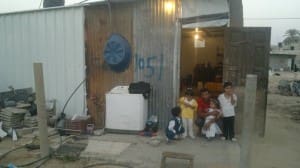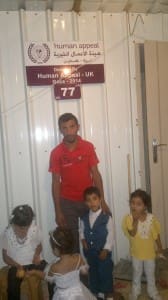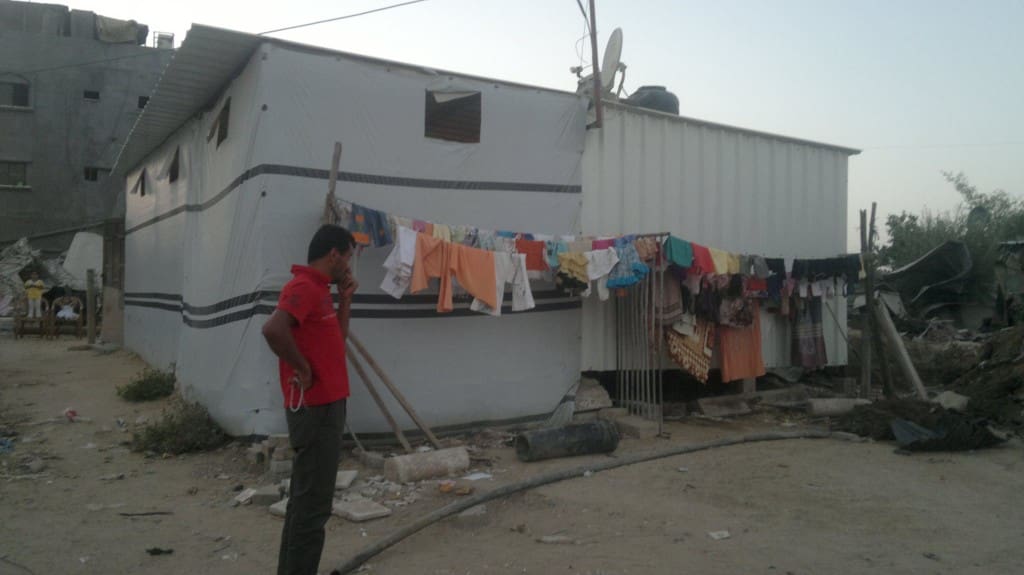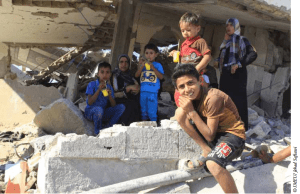This interview was first published in Al-Adab in Arabic.
I met Saleem Zaru, Executive Director of United Palestinian Appeal (UPA), under the strangest of circumstances. UPA had published an appeal to raise money for my friend Nureddin Amro, whose home was partially demolished by Israeli authorities in Jerusalem on March 31, 2015. As a frequent critic of international aid, I was pleased to have the rare chance to say “thank you,” so I wrote to UPA to affirm what a wonderful human being and valuable community leader they were supporting. Saleem answered me personally. He had read my work. He wanted to meet on his next trip to Palestine. With this one act, Saleem distinguished himself from those donors who are too busy to make a human connection and who see philanthropy as a series of transactions rather than as a web of relationships.
I wrote to him again in June, but this time I was not congratulatory. Not only had Nureddin not gotten his money, but there were some strange-sounding dynamics in the discussions about disbursement. I feared it was the same old pattern – donors use a Palestinian tragedy to raise money but in the process of implementing, they manage to harm Palestinian dignity and agency. With Nureddin’s permission, I told Saleem my concerns, and that’s how we entered into a rather deep and honest conversation (see below) co-analyzing his experience as a Palestinian donor.
Nora: There is something different in the way you talk about helping Palestine, but the nature of the difference isn’t clear. Is there an Arab way of being a donor that’s different or better than the western way? Is there a way that is uniquely Palestinian?
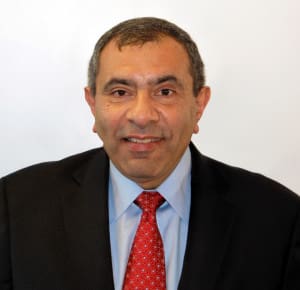
Saleem: I’m delighted to hear that you sensed that we are trying to be different from typical aid organizations. It is true that many Arab donors just copy foreign donors. That’s because “aid” is a foreign concept, a form of colonialism, a way to control the indigenous population. When Arabs do “aid” they have to look outside for models. They aren’t necessarily malicious, but sometimes that way of helping doesn’t work.
It is not only donors that have gotten used to a bureaucratic, organization-centric approach to helping; “beneficiaries” are also used to it. Saleem told me that on his recent trip to Gaza, some Palestinian partners were frustrated that UPA doesn’t follow a specific, pre-set funding strategy. Saleem told them, and me, that meeting local needs means being responsive not prescriptive.
Nora: That sounds nice on the surface, especially when you say it is the responsibility of local organizations to articulate what they need. But needs are huge, endless, infinite, and also irrelevant in a way. You could never respond to all their needs, so isn’t it more important to talk about who makes the funding decisions rather than who defines the needs?
Saleem: Of course what we do is a collective drop in the bucket, so let me clarify that we, with the local partner, have to decide how to respond to the urgent and important needs, the ones that are priorities. We also know that our response is incomplete if we only look at emergency needs without having a program that helps people deal with, avoid or be more empowered to cope with similar situations in the future.
Nora: That’s the classic dilemma facing humanitarian actors who are tasked with responding to emergencies despite knowing that there will be more and more of them. It sounds as if you’re reasonably satisfied with UPA’s approach to it: You have both large, long-term projects that build infrastructure and capacity, such as your cranio-facial surgery center in Ramallah. And you have small, one-time “emergency” projects like helping Nureddin, who needed help rebuilding his house.
Saleem: Exactly.
But in the case of Nureddin, UPA’s help did not come as swiftly and easily as Saleem intended. He said there were logistical considerations and legal restrictions. These caused misunderstandings and delays. When Saleem finally traveled from the US and visited Nureddin in August, it didn’t take more than one minute for the two men to sense each other’s authenticity, and one minute later they had agreed on a way to disburse the money that satisfied everyone’s requirements.
Saleem told me later that Nureddin’s situation is harder to address than, for example, when UPA is asked to fund toys for a kindergarten. “The challenges are exaggerated because of the sensitivity of the issues and the magnitude of the project – whether and how he can rebuild or not is a legal and political issue.”
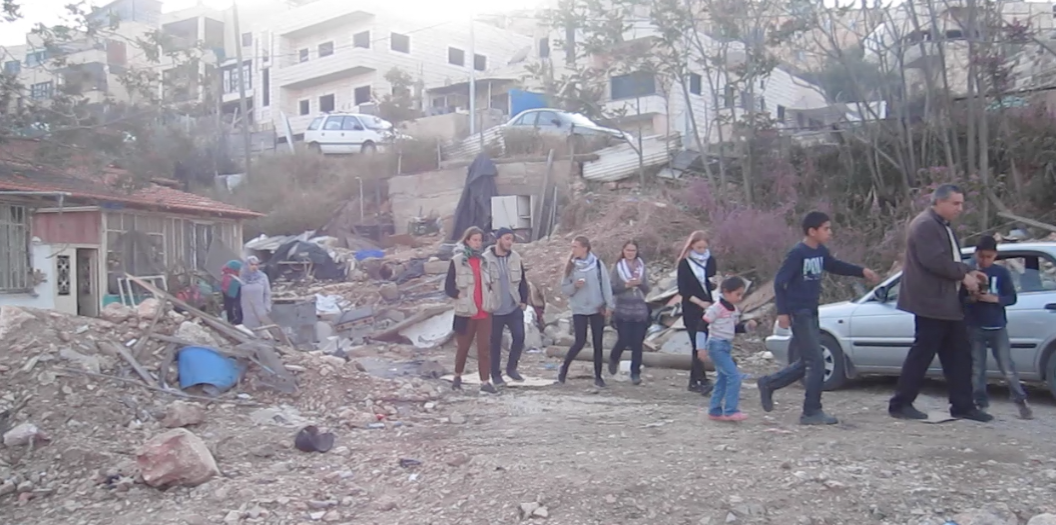
Nora: For Palestinians living under Israeli control, everything is political. And this makes me wonder, why do you respect the constraints rather than target them? Why do you abide by restrictions that aren’t legitimate, helpful or reasonable when they undermine your ability to do what you say you’re doing – to respond quickly to needs as they are defined locally?
Saleem: Nureddin has a full right to get the funds we raised for him in a timely manner so he can do what he needs to do. But we also have a responsibility to the dozens of donors who together contributed to Nureddin’s grant. That responsibility is defined legally in our role as a nonprofit organization in the United States; and morally we are obliged to allocate the funds for the purpose for which they were raised.Fulfilling these obligations sometimes requires procedures we don’t like, but our legal status depends on it.
Nora: Other donors, the ones who aren’t Palestinian, frequently cite “rules” to explain why there is a gap between their philosophy and their implementation. For example, a typical international NGO might say that if you don’t have a permit from the Israelis to rebuild, we won’t pay for your house because our commitment to donors means we cannot waste their money by building what will likely be demolished again. And that’s logical if you look only at cost-effectiveness. How is UPA different?
Saleem: When you talk about the Palestinian struggle and steadfastness, these are all political issues. But there is also a humanitarian dimension. When a home is demolished, families are subjected to violence, children are traumatized. We focus on the humanitarian aspects but we never forget that the humanitarian problem is caused by a political situation. For example, in an ideal world, we wouldn’t need to address the mental health needs of children in Gaza. These kids don’t need therapy, they need freedom. In an ideal world, life would be easier, the kids would have freedom. But in reality, they do need mental health support so we try to provide it.
Nora: If a donor is going to pay for mental health services in Gaza, does it matter whether the donor is Palestinian or not?
Saleem: Our founders are Palestinian-American, our Board is Palestinian-American and our director is Palestinian, and we see ourselves as a local organization and not as a donor organization. There’s a difference between organizations like UPA and ones that take government funding to implement humanitarian work in Palestine or elsewhere. What we do is we try to find legitimate and important needs in Palestinian communities and go raise the funds for them from our 25,000 donors, some of whom contribute only $2/month or $6 or $100, but their level of commitment is very high.
Nora: Does this high level of accountability to donors seep into a practice that looks like “donor-driven” philanthropy?
Saleem: This would be donor-driven if the donors dictated the need that they wish to fund. In our case our donors are responding to a need that has been decided locally; they do not set policy for any intervention.
Is UPA an example of solidarity philanthropy? It seems so when Saleem says, “Nureddin should be commended for his perseverance and we have to stand by him. How can we not stand by him?” But despite good intentions, UPA does seem mired in some of the same bureaucratic obstacles that face all actors working in Palestine who claim to be apolitical.
I leave the conversation wondering: What does it mean to “help Palestinians” unless one is helping Palestinians to achieve their political rights? What does it mean to be a “humanitarian actor,” Palestinian or not, in a political crisis?
Fortunately, the conversation is not over. Saleem Zaru is sincere in his commitment to continuous improvement, even when it means opening UPA to criticism. He says, “Those who are married to their ideas and get threatened by suggestions might as well be dead.”UPA is certainly not dead, and whether or not UPA has achieved the distinction of “solidarity donor,” it is definitely contributing to the conversation about what it means.
